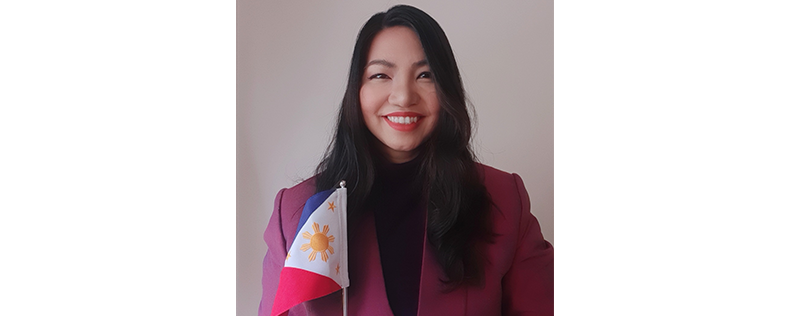Applying GEDSI Mainstreaming Principles to Combat Human Trafficking

It is almost serendipitous for me to suddenly be assigned to Syria during my REAP implementation and have the opportunity to apply the REAP in a manner that significantly impacted the lives of trafficked Filipinas in Syria.
For the first time in a long time, the Philippine Embassy shelter in Syria is empty. In June 2021, the final batch of Filipino human trafficking survivors from Syria arrived back in the Philippines. These repatriates, primarily women, suffered from poor working conditions and abuse by employers. Behind the successful repatriation is a gender-based, victim-friendly and trauma-informed approach to reducing survivor vulnerability developed by the Philippine Embassy in Syria’s Vida Soraya Verzosa.
This new approach implements her re-entry action plan or REAP following her participation in the Australia Awards Short Course on Gender, Equality, Disability and Social Inclusion (GEDSI) Mainstreaming in June 2020.
Vida’s REAP included legal training for DFA personnel who conduct the initial interaction with vulnerable individuals and victims, to better equip them in handling the legal aspects of cases. This included a needs assessment data-gathering
workshop aimed at better understanding needs of victims and how to develop bespoke approaches to care, particularly for vulnerable individuals and families.
In the middle of implementing her REAP, Vida was assigned as Chargée d'Affaires at the Philippine Embassy in Syria, where she continue to act as Head of Post.
“It is almost serendipitous for me to suddenly be assigned to Syria during my REAP implementation and have the opportunity to apply the REAP in a manner that significantly impacted the lives of trafficked Filipinas in Syria.”
Quality education amidst the pandemic
The short course was delivered online by the University of Queensland. It was designed to improve the competencies of participants in mainstreaming GEDSI and the GEDSI outcomes of their respective agencies. An integral element of the course is the development of a REAP which enables participants to apply what they learned in their workplaces.
Vida fondly shared that distance learning worked for her and her classmates came from across the Philippine government. “We felt it was a safe space to practice critical thinking and receive insights from our group facilitator. I enjoyed the balance of academic rigour and the laid-back approach to the Zoom discussions. This seems to be part of the uniqueness of Australian education.”
Getting quality education during the pandemic is a feat worth celebrating, she shared. “Completing the course at a time when there is a global pandemic feels like a major accomplishment because these are extraordinary times to
be studying.”
Vida took advantage of the opportunity to grow and learn amidst the limitations she had to face being in Syria at that time. The course allowed her to pace her studies and the support materials gave her the resources she needed to complete the course with flying colours.
Facilitating effective access to justice
In developing her REAP, Vida was motivated to improve access to justice by trafficked Filipinos, particularly those who were most vulnerable. According to Vida, not all DFA overseas posts have legal officers or retained legal counsel who can readily assist. Therefore, it is necessary to increase the capacity of DFA personnel assigned to handle case referrals, which is the focus of her REAP.
“DFA personnel at our overseas posts are the first line of defence, the first with face-to-face interactions with these women and other socially excluded persons, and the first to initiate the process of evidence-gathering and case build-up, for onward processing to law enforcement and justice agencies.”
The online training catered to participants from across the DFA all over the globe. Vida also produced a handbook entitled The Syria Model: Legal Handbook on Assistance to Nationals Cases that was distributed to DFA offices and posts that need legal
empowerment resources.
“By providing them the legal empowerment tools to assist women migrant workers, including persons with disabilities, ethnic minorities, and other socially excluded people, more people can be saved and the DFA’s capacity to make an impact will exponentially grow,” said Vida.
Ultimately, Vida’s REAP enabled the filing of trafficking in persons cases, which provided for the prosecution of traffickers under Philippine law. “My REAP was not just an online training or capacity-building workshop, but the actual implementation of the learnings [from the short course]. It produced tangible results for the beneficiaries who were given ‘access to justice and legal empowerment’ opportunities, both in Syria and in the Philippines.”
As a result, Vida was invited to share the positive outcomes of her REAP with the Philippine Senate, where she received a commendation for her approach – dubbed “The Syria Model” – because it was
an innovation in the way the Philippine Embassy was handling trafficking in person cases.
“My Australian education helped make this REAP a success because it helped me accomplish major organisational outcomes. The entire experience added value to my life and the lives of all those we are serving in the course of our work as diplomats.”



